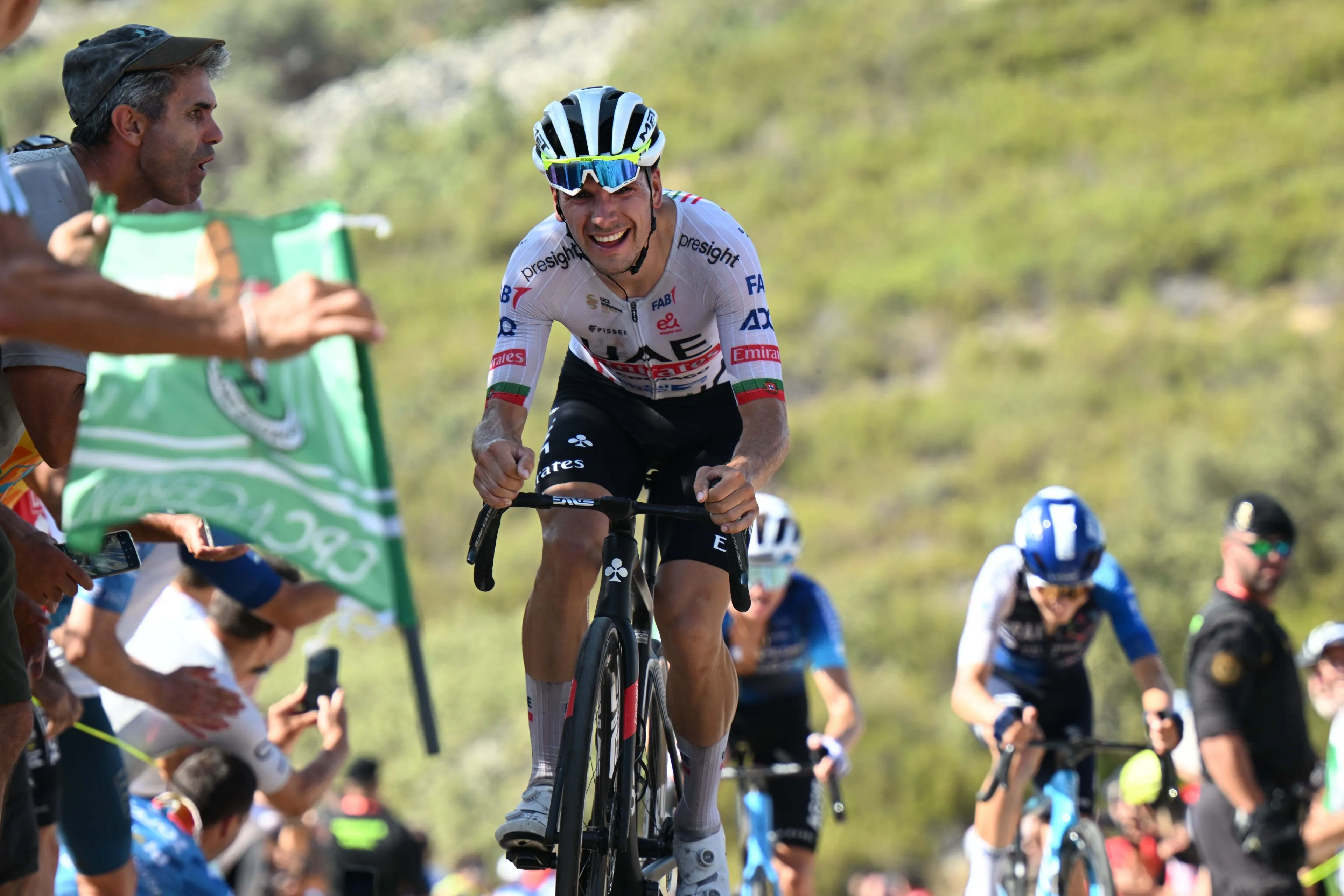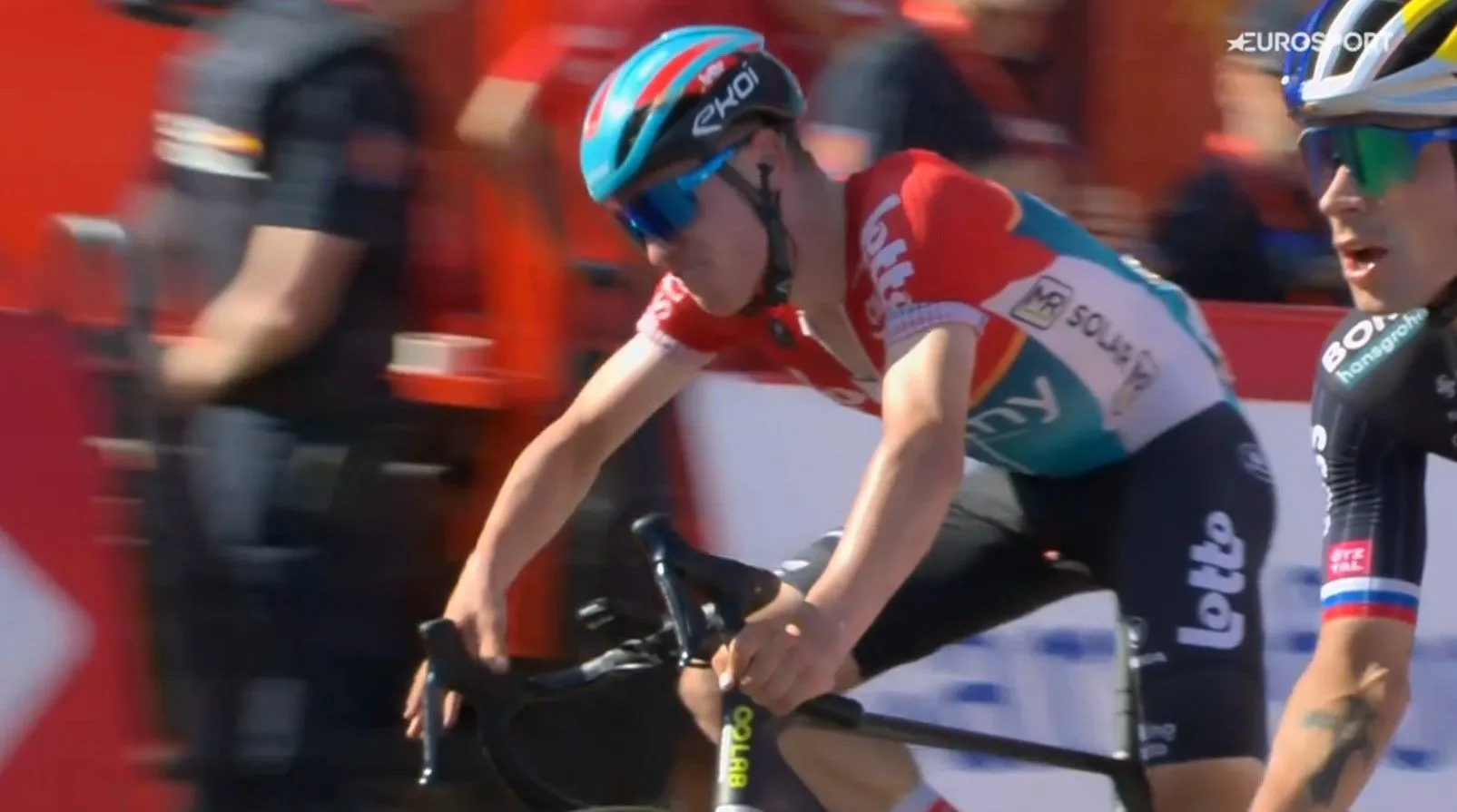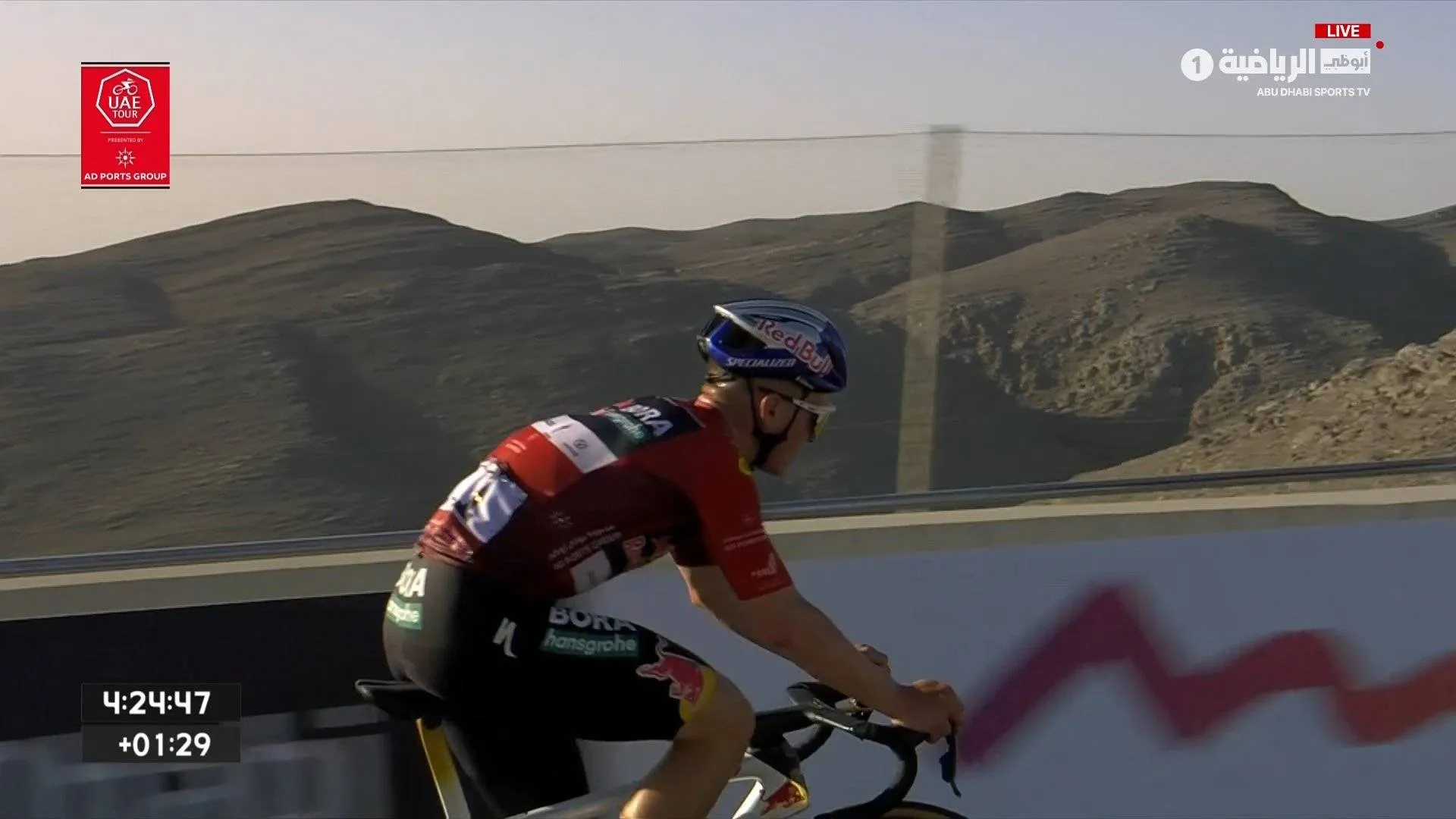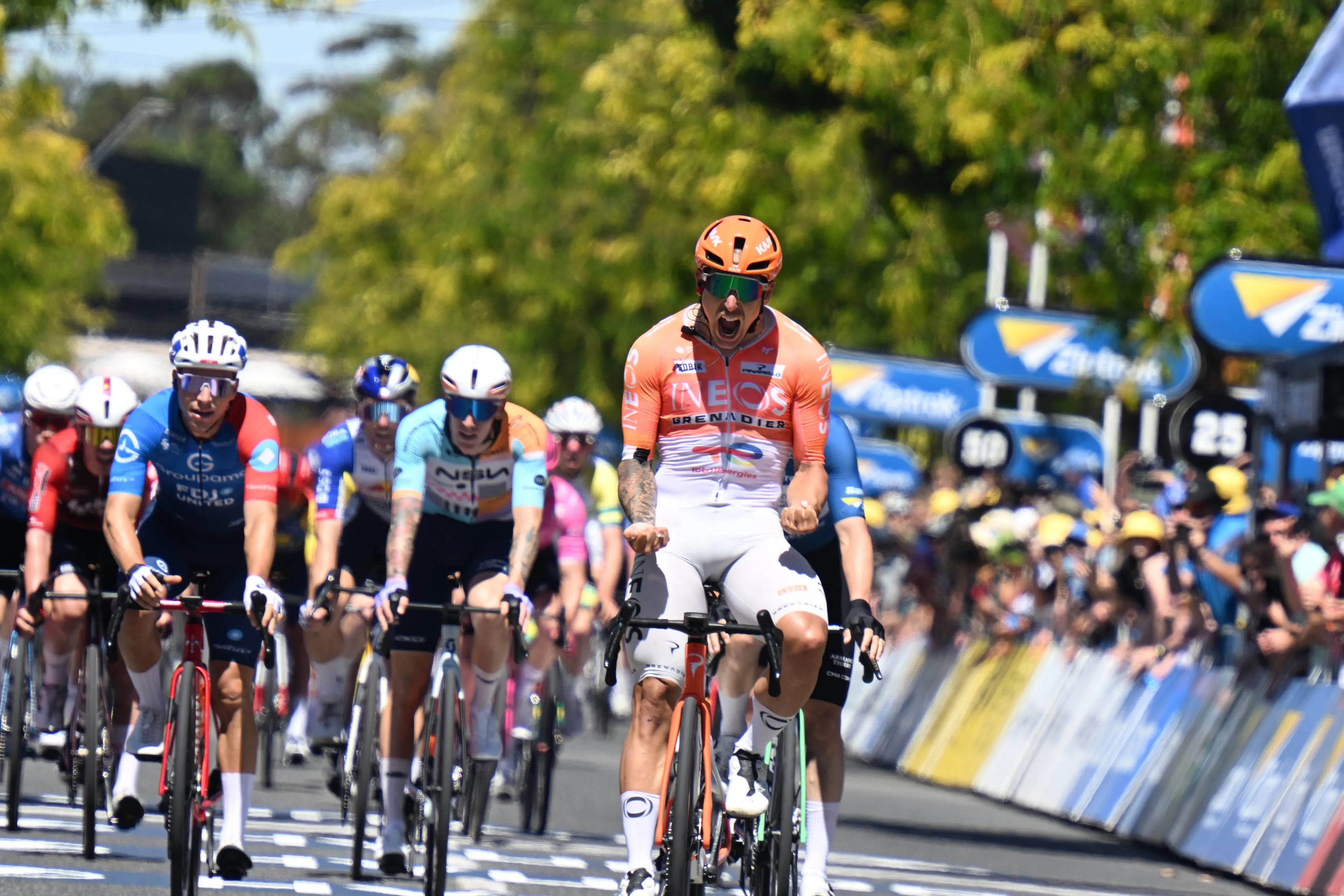
Primoz Roglic's triumph on Stage 4 of the 2024 Vuelta a Espana was
a masterclass that reaffirmed his reputation in this race. Roglič, now poised
to chase a historic fourth Vuelta title, displayed the same tactical
brilliance and sheer power that has marked his previous victories.
But what makes the Slovenian such a consistent and
formidable presence in Spain’s grand tour? His ability to thrive in this race
stems from a combination of physical characteristics, race intelligence, team
support, and a remarkable resilience that has defined his cycling career.
Roglic’s longevity
Not only does Primoz Roglic have impressive longevity in
terms of his career, but the Red Bull Bora rider also manages to perform at a
high level throughout the season. One of Roglič’s greatest strengths is his
ability to time his form perfectly for La Vuelta, a race that typically takes
place at the end of the cycling season. Unlike other riders who may struggle
with fatigue after a gruelling year of racing, Roglič excels when others begin
to falter. In the 2024 edition of the race, his stage 4 victory came after he
tactically outwitted his rivals on the steep summit finish, showcasing his
knack for timing his efforts to perfection.
Read also
This ability is crucial for a three-week race, where peaking
too early or too late can ruin an overall classification (GC) bid. Throughout
his previous victories in 2019, 2020, and 2021, Roglič has consistently ramped
up his form during the race, and has rarely showed signs of weakness in Spain.
Whether it’s mastering short, punchy climbs or performing in longer mountain
stages, Roglič’s form typically grows stronger as La Vuelta progresses.
The Climbing-Friendly Terrain
Spain’s mountainous terrain plays directly into Roglič’s
hands. His climbing ability is among the best in the world, and La Vuelta is a
race notoriously packed with brutal ascents. The Slovenian’s combination of
explosive power and stamina makes him a perfect fit for the short, sharp uphill
finishes that La Vuelta is famous for—as seen on Tuesday’s stage 4. Roglič
expertly handled the steep final climb, using his superior positioning and
energy management to distance his rivals and claim a commanding victory.
Read also
Roglič’s love for Spain’s jagged profiles has been evident
in previous editions. In 2021, he won multiple stages that included iconic
climbs such as Lagos de Covadonga and Alto de El Gamoniteiru. His explosiveness
allows him to attack and create significant gaps on these challenging terrains,
further underlining why he consistently excels in Spain.
Roglic also excels in the heat, which is a key characteristic
of La Vuelta every year. Whilst other renowned climbers falter in the hot
weather, such as the likes of Carapaz on stage 4, Roglic is not fazed by the
blistering heat in the Spanish mountains.
Tactics and support
Roglič is not just a physically dominant rider; his tactical
sense on the bike is unparalleled. On multiple occasions, he has shown that he
knows when to attack, when to conserve energy, and how to exploit his rivals’
weaknesses. His tactical nous was on full display during Tuesday’s victory,
where he bided his time before launching a decisive move in the final kilometre.
Roglic’s team, Red Bull Bora Hansgrohe, expertly controlled the peloton beforehand,
and primed their leader for an attack on the final climb.
Read also
Throughout his Vuelta successes, Roglič was previously
bolstered by his team at Jumbo-Visma. The Dutch squad perfected the art of
protecting their leader in key moments, controlling the peloton, and setting up
Roglič for stage wins. Jumbo-Visma’s meticulous planning and exceptional
teamwork were crucial in helping Roglič avoid unnecessary time losses and
position him perfectly to strike when it matters most, and Red Bull are hoping
to replicate this.
Recovery and Resilience
In the three-week grind that is a grand tour, recovery is
key—and Roglič is a master at bouncing back from adversity. His mental
toughness and physical resilience are traits that have defined his career,
particularly after high-profile setbacks like his heartbreaking defeat in the
2020 Tour de France. Roglič has shown that he can take hard knocks, regroup,
and come back stronger.
At La Vuelta, this resilience has proven vital time and time
again. In his 2019 and 2020 triumphs, Roglič bounced back from crashes and
challenging moments to ultimately emerge victorious. His experience and
knowledge of the race mean that he knows how to conserve energy during less
critical stages, while turning up the pressure when the opportunity arises.
Read also
The Perfect Environment
La Vuelta a España has also become something of a
psychological stronghold for Roglič. Success breeds confidence, and after three
overall victories, he now approaches the race with a mental edge over his
competitors. His understanding of the demands of La Vuelta—from the weather
conditions, altitude changes, to the intense competition—gives him an advantage
when it comes to managing the race.
Additionally, the Spanish fans have embraced Roglič, and he
enjoys competing in a country that has become something of a second home. This
positive environment has fostered a sense of belonging, which, combined with
his physical strengths, has propelled him to victory time and again.
Read also
Is a Fourth Vuelta Win in Sight?
With his stage 4, Roglič has sent a clear message to his
rivals that he is once again in top form and ready to challenge for a fourth
Vuelta title. His adaptability, form management, and psychological edge make
him a top contender as the race progresses. While the competition is
fierce—with rising stars and seasoned veterans also eyeing the red
jersey—Roglič’s track record, tactical intelligence, and unique ability to
thrive in Spain’s challenging conditions make him a favorite to stand on top of
the podium once again.
Primož Roglič’s continued success at La Vuelta a España is
no fluke. It’s the result of meticulous preparation, outstanding teamwork, and
a rare combination of mental and physical fortitude that has allowed him to
flourish where others falter. As he eyes a fourth title in 2024, Roglič once
again proves why he is Spain’s dominant force, and why La Vuelta seems to bring
out the very best in him.
claps 14visitors 14
Just in
Popular news
Latest comments
- Remco is not the natural climber that riders like Tadej or Jonas are, no matter how much he trains and prepares for it. Yes, you can TT your way up moderately steep hills, but when the gradient gets super steep, he just can't keep up.
 santiagobenites18-02-2026
santiagobenites18-02-2026 - So against the better riders and a long mountain, Remco cracked. Sorry but way away from Pog and Jonasabstractengineer18-02-2026
- “I was portrayed as the devil" Bruyneel was really a talented team manager. His minor flaws: "coordinated, well-funded, and sophisticated doping regime" "hand-in-hand in implementing the team-wide doping programme" "was involved in trafficking and administering prohibited substances and methods, including EPO, blood transfusions, testosterone, human growth hormone, and cortisone. Teammates testified that nothing significant happened without Bruyneel's knowledge and approval." "fostered an environment where doping was considered a "fact of life" and necessary for success, effectively making it a condition of survival on the team. He also participated in or assisted with the cover-up of positive tests and doping violations." Those quotes show Bruyneel's true talent.Cyclingnut18-02-2026
- Fed up hearing "their" voicesslappers6618-02-2026
- When you join Ineos , learning , time , no pressure go out of the windowabstractengineer18-02-2026
- The UCI screws up againcaptmike18-02-2026
- No matter what people say - I'll watch it. And I bet all the complainers will do it too....averagecyclist18-02-2026
- Exactly what I'm thinking about it. Moreover Van Glis had a lot of time to rethink his situation but decided to stay where he was.averagecyclist18-02-2026
- Soler must be pissed at that
 leedorney18-02-2026
leedorney18-02-2026 - Completly agree, Jan was in front of van gils, following Pidcock wheel, it was Van gils who tried to force his way through Jan and the barriers. Are they blaming Jan because he belongs to the richest team that win a lot?
 maria2024202418-02-2026
maria2024202418-02-2026
Loading
Write a comment











